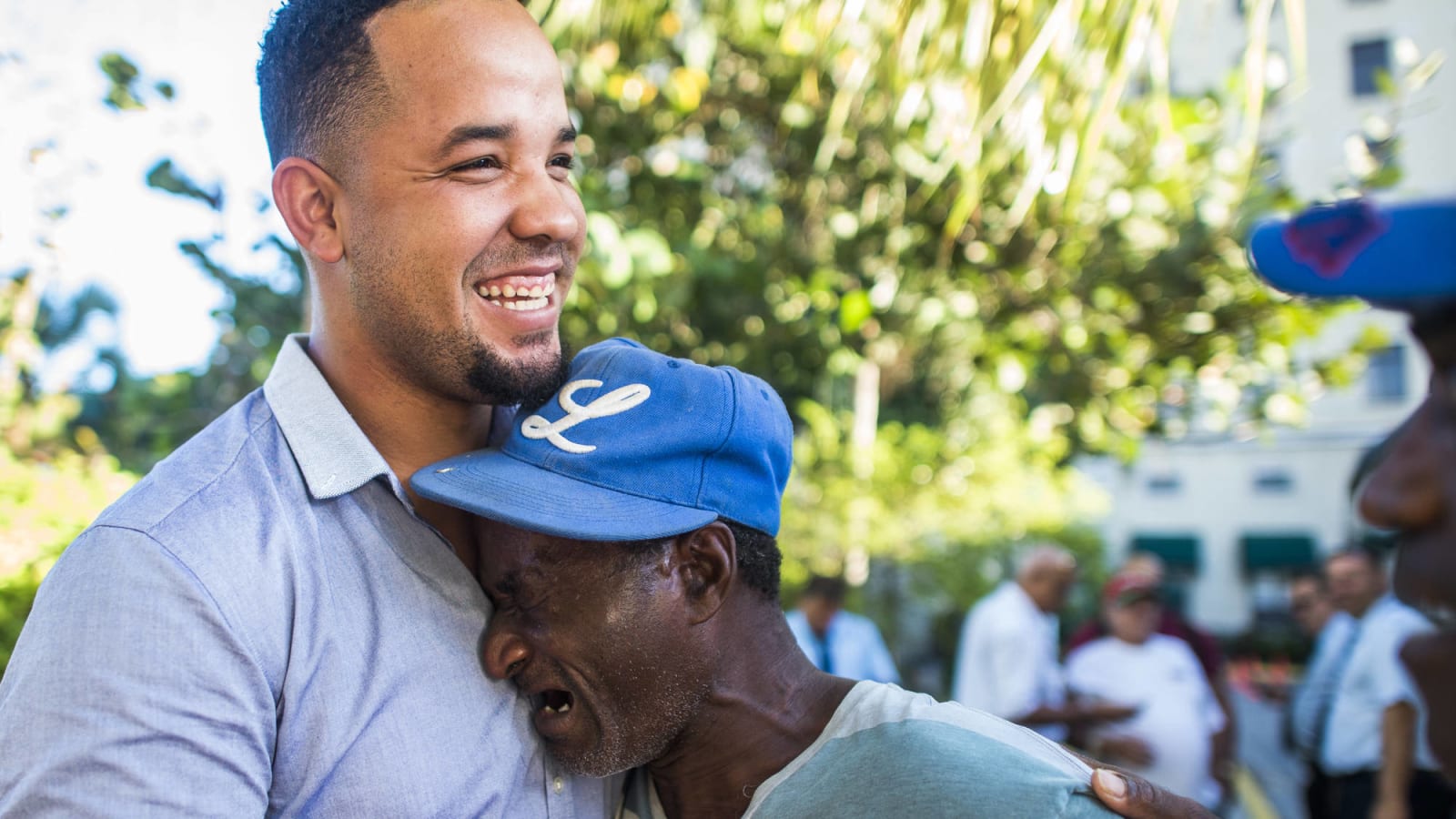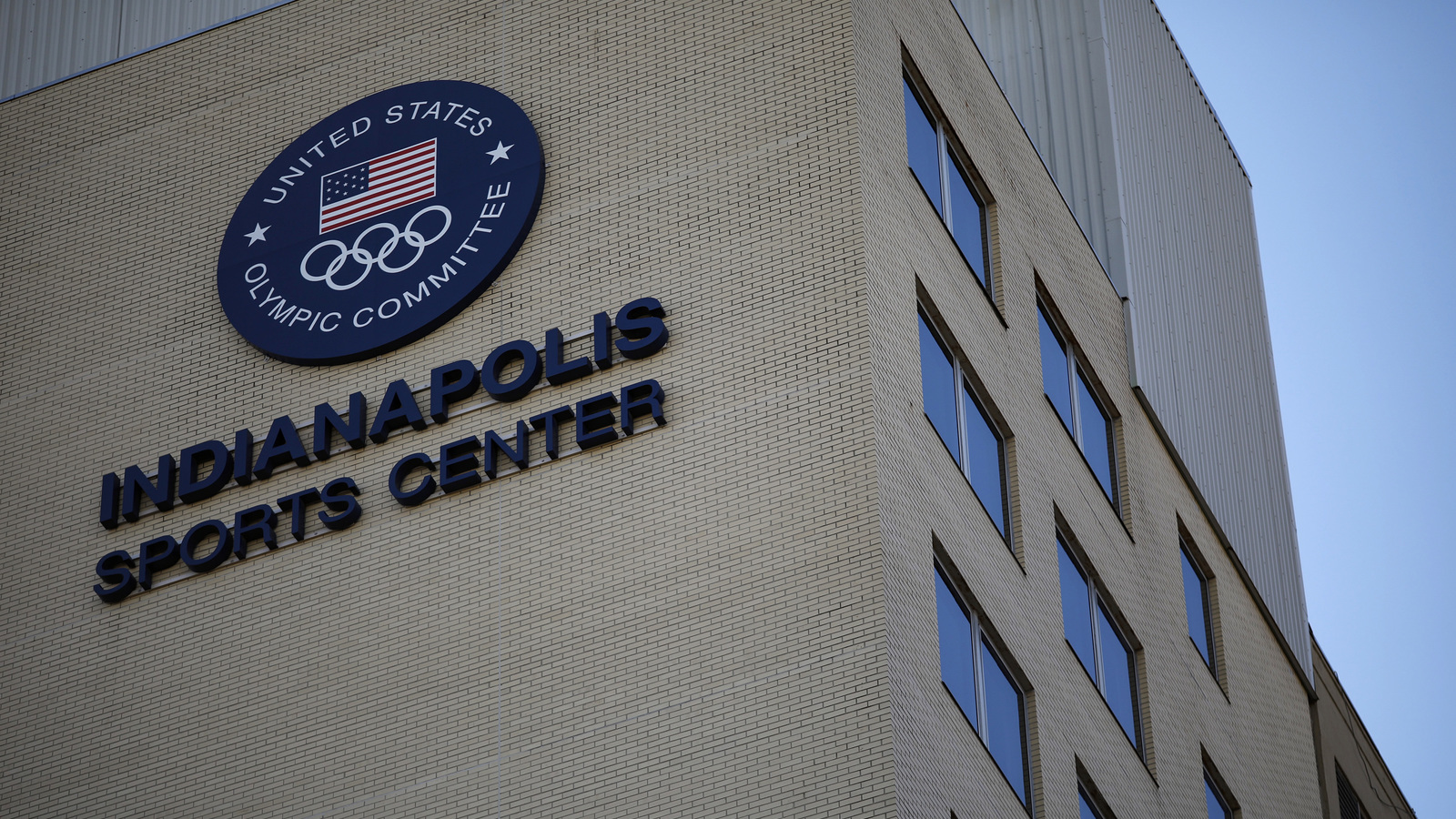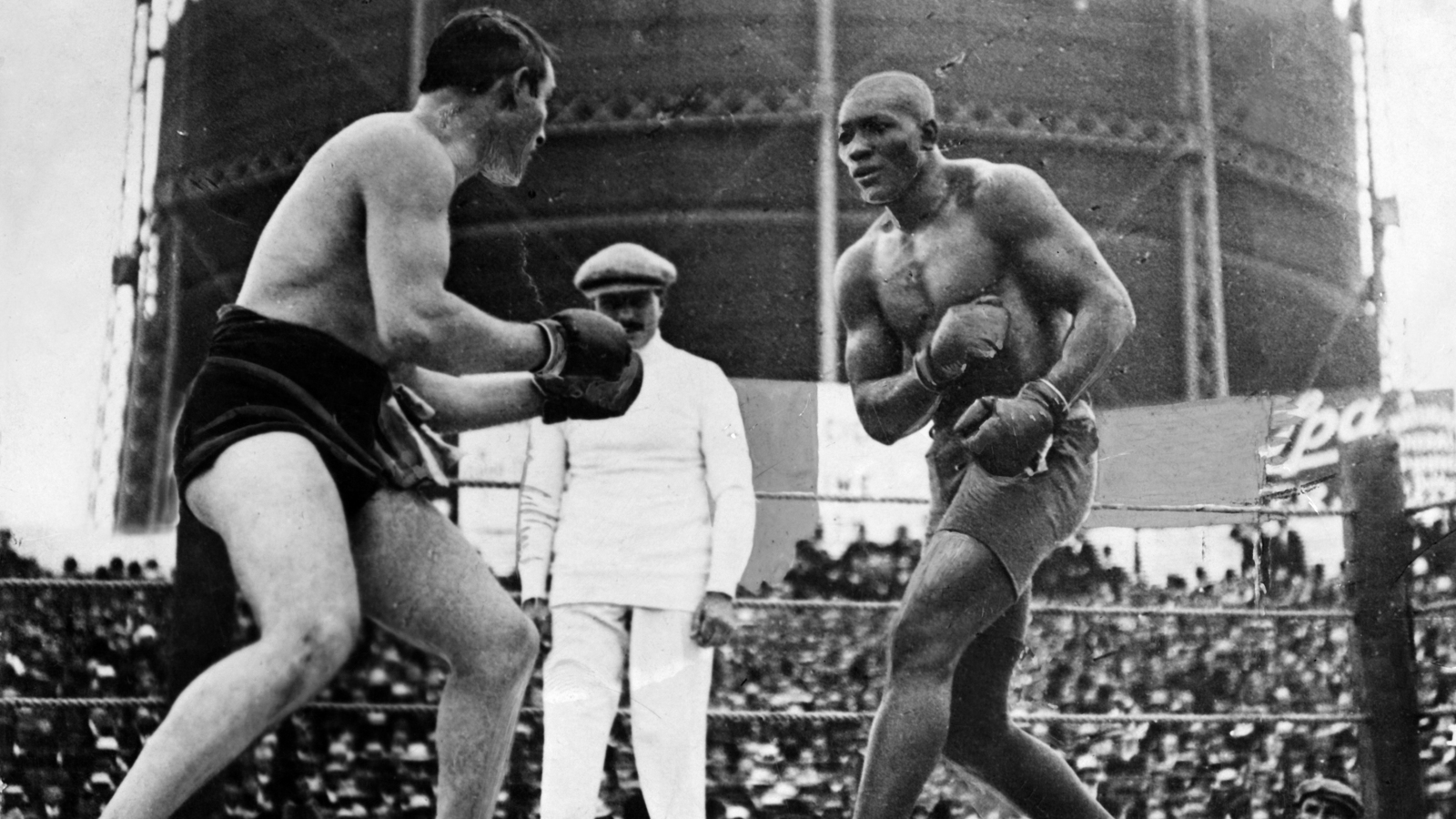
Sports & Politics Intersect: MLB goes to bat for Cuban players
“Knowing that the next generation of Cuban baseball players will not endure the unimaginable fate of past Cuban players is the realization of an impossible dream for all of us. Dealing with the exploitation of smugglers and unscrupulous agencies will finally come to an end for the Cuban baseball player.” - Chicago White Sox and Cuban-born slugger Jose Abreu
For years, Cuban-born athletes with dreams of playing Major League Baseball have literally put their lives in danger trying to reach the United States to make that a reality. That should no longer be the case.
On Wednesday, MLB, the Players Association and the Cuban Baseball Federation agreed that players from Cuba can now sign major league contracts without having to defect. While the decision can potentially benefit all parties involved, in theory, a major reason for the agreement is the hope that the days of dealing with smugglers and human trafficking of all the promising talent will end.
“Establishing a safe, legal process for entry to our system is the most important step we can take to ending the exploitation and endangerment of Cuban players who pursue careers in Major League Baseball,” Players Association executive director Tony Clark said in a release. “The safety and wellbeing of these young men remains our primary concern.”
According to Cuban journalist Francys Romero, as reported by Reuters, more than 350 players have defected from Cuba since the beginning of 2014. For years, MLB has been looking for a solution to improve players’ journeys from the island to the big leagues. Common practice in the past was for defectors to land in a third-party country, such as Mexico, via smugglers, who, in turn, would demand money for their entry to the U.S and continue to collect well into a player’s career.
It’s an often dangerous trek the likes of current MLB stars Yasiel Puig and Jose Abreu take to the majors. Now, a player can sign a contract in Cuba and receive a work visa for the U.S. However, he’ll likely still need to visit another country to apply for the latter, though via a safer route. As reported by the Miami Herald, Puig stated, “To know future Cuban players will not have to go through what we went through makes me so happy. I want to thank everyone who was involved in making this happen and thank them personally for allowing an opportunity for Cuban baseball players to have the ability to come and show how talented they are.”
The agreement allows Cuban players 25 or older and with six years of service in their native league to sign with major league clubs. Those MLB teams will then pay the CBF a fee, reported between 15-25 percent of the player’s guaranteed money. Players younger than 25 may also leave but will need permission from their Cuban teams and must serve out a waiting period. The CBF would receive 25 percent of said player’s signing bonus in this case.
While those fees would allow Cuban baseball to potentially flourish and likely give MLB teams a bigger talent pool from Cuba to work with, the United States government is not completely on board and plans to keep a close eye on the development. The Trump administration reportedly is not a big fan of the Cuban government profiting from an American business, in this case MLB. One senior member of the Trump administration told The Washington Post that this agreement “would institutionalize a system by which a Cuban body garnishes the wages of hard-working athletes who simply seek to live and compete in a free society. … Parties seeking to benefit from business opportunities in Cuba are on notice that the administration will continue to take actions to support human rights and restrict the Cuban regime’s ability to profit from U.S. business.”
Republican Sen. Marco Rubio (FL), whose parents emigrated from Cuba in the 1950s, tweeted that Cuba essentially is sponsoring “trafficking of baseball players.”
While it will be interesting to see how this all plays out, for the moment, a theoretically safer path to making dreams realities for Cuban ballplayers is in place.
Need to know now:

New reports condemn both MSU’s and USOC’s handling of Nassar - A week after one independent report lambasted the US Olympic Committee and USA Gymnastics for their collective mishandling of the Larry Nassar saga, the Congressional Energy and Commerce Committee released a report on its investigation of how the USOC had systemic “breakdowns and failures” in stopping the former doctor from sexually abusing athletes. In Indiana, the state’s attorney general confirmed that his office had a year-long investigation into USA Gymnastics. On Friday morning, Michigan special independent counsel William Forsyth released a blistering report accusing Michigan State University of stonewalling investigators and mishandling early accusations against Nassar. Former MSU president Lou Anna Simon will have a key hearing in her criminal case in January as it relates to lying to investigators about Nassar’s crimes.
Eric Reid says random drug testing isn’t random - After the Carolina Panthers’ loss to the New Orleans Saints, safety Eric Reid was given a random drug test. According to Reid, this was the seventh drug test he had to take since signing with the team in late September. The probability that the safety would be randomly selected this often over a three-month span is incredibly low. Equally as low is the murmur from the NFLPA, which has been criticized for its silence on the matter, although it can only comment if Reid gives the union authorization to take action. (Head coach Ron Rivera also cannot comment but said “If my name came up that much, I’d buy a lottery ticket.”)
In 2018, legalized gambling changed sports landscape - The Sports Business Journal listed its most influential sports figures of 2018, and at the top is not a commissioner, network executive or even an athlete, but the newly empowered American gambler. Thanks to the Supreme Court’s ruling in the spring, the entire industry is shifting for the legal bettor’s dollars.
Proposed gambling bill will require use of league data, USADA could potentially be involved - Sens. Chuck Schumer (D-NY) and Orrin Hatch (R-Utah) proposed new legislation that would impose some federal oversight over the new gambling landscape, including requiring that gaming companies use league data for their services. The Sports Wagering Market Integrity Act of 2018 attempts to establish a “clearinghouse” for sharing of information of unusual movement, among other things. On Friday, the U.S. Anti-Doping Agency indicated the organization has an interest in monitoring betting.
Bill on docket to ban doping conspiracies - The gambling bill isn’t the only sports-related law Sen. Hatch is trying to pass, as the longtime Utah lawmaker co-sponsored a proposal with Sheldon Whitehouse (D-Rhode Island) that would criminalize international doping schemes such as the one that Russians used during the Sochi Olympics in 2014.
Ex-Marlins prez taunts fans over sale - As if the former stewards of the Miami Marlins aren’t already despised enough in South Florida, former team president David Samson made things even worse while attending the birthday party for ESPN’s Dan Le Batard, as he bragged about the $1.2 billion sale of the team with some choice words. (Le Batard, himself, expressed some regrets.)
Companies didn’t stick to sports in 2018 - While not a total shift in corporate America, major companies no longer sat on the sidelines when it came to the typical third rail of politics — especially some sporting brands such as Nike, Patagonia and Dick’s Sporting Goods. Latching onto social issues made dollars, cents and for some brands, sense.
Fans become U.S. citizens at Jaguars game - In what may be a first, a naturalization ceremony took place at an NFL game. Sixty-five people who emigrated from nearly 40 countries became U.S. citizens during halftime of the Washington Redskins/Jacksonville Jaguars game at TIAA Bank Field.
Chicago suburb sponsoring bowl game as recruitment tool - It’s bowl season, which means some of the seemingly most random companies are attaching themselves to the multitude of postseason college football games. For the “Makers Wanted” Bahamas Bowl, it’s a town, or more specifically a town home, to the largest industrial park in America.
Baltimore mayor: Preakness can go on during Pimlico rebuild - Catherine Pugh, the mayor of Baltimore, said that the Preakness Stakes — the famed second leg of the Triple Crown — would not have to relocate if and when the Pimlico Race Course is demolished and rebuilt over a three-year period.
Trump raved over Holloway fight, according to Dana White - During a podcast interview, UFC president Dana White revealed that President Donald Trump called him to praise the UFC 231 main event where featherweight champion Max Holloway defeated Brian Ortega.
Silver says Suns relocation would be failure - NBA commissioner Adam Silver spoke on the reported-then-rescinded threat by Phoenix Suns owner Robert Sarver to relocate the franchise to Seattle or Las Vegas, saying that “it’d be a failure on my part if a team ended up moving out of a market.” Further east, Indiana governor Eric Holcomb said that it is “very important” to keep the Indiana Pacers in town, as the team is looking to make improvements to the 19-year-old Bankers Life Fieldhouse.
Women still play on uneven playing field in competitive chess - Gender equality isn’t just an issue for stick-and-ball sports, as it’s still quite evident in chess. More than 50 years after American phenom Lisa Lane dominated the scene, the number of elite female players remains quite small as well as the financial payoff.
Transgender high school runner defies the odds - In Connecticut, 17-year-old Andraya Yearwood is one of the fastest runners in the state, but as a black transgender athlete, she deals with constant resistance and backlash from competitors and parents.
This week in sports and politics history: Jack Johnson becomes the heavyweight champion of the world

“I knew it even before the contest. We had a message from him Christmas Eve and he said it was all over but collecting the money; that he was in fine trim, and it was merely a matter in how long Burns would hold out.” - Tina Johnson, mother of Jack Jackson, speaking to the Chicago Tribune on Dec. 26, 1908
For two years, Jack Johnson followed Canadian fighter Tommy Burns around the world, begging for a fight. Johnson, who had won the World Colored Heavyweight Championship in 1903, wanted a crack at Burns, the world heavyweight champion. On Dec. 26, 1908, Johnson got his shot.
In front of 50,000 spectators outside Sydney, Australia, Burns and Johnson finally faced off. It wasn’t the first time a black fighter was vying for a championship, as Joe Gans won the lightweight title six years earlier. While white fighters could face black fighters, they were not allowed to fight for the world heavyweight championship. That title was not for the son of former slaves from Galveston, Texas.
Johnson knew exactly what he was facing in Burns. In chasing him around the globe, he often sat ringside for his matches, taunting Burns; studying him. All of the bouts he took in meant Johnson could tailor his game to not just defeat Burns but also to dominate him.
Long before Muhammad Ali danced around the ring to exhaust opponents, Johnson used his reach — 74 inches — to keep opponents at bay. He moved around the ring, letting their arms tire out as they lunged in on him. Against Burns, Johnson even let the champion land a punch as Johnson stood with his arms wide open.
The fight went on for 14 rounds before it was stopped, not by a referee or Burns’ corner, but by the police. Johnson had defeated Burns but also had upset the racists who had not conceived that a black man could beat a white man. Race riots broke out in the United States.
Meanwhile, there was a group of Johnson’s biggest fans in Australia. Chinese-Australians thought the “unequal classification of people by skin color” was against God’s will, and they held up Johnson as a hero. The headline of the Chinese Australian Herald the day after Johnson’s win read:
In Recent Decades, the Most Famous White Boxers Called Themselves Invincible. Now Tommy Burns Fought with Jack Johnson for Fourteen Rounds and was Defeated and Injured. Twenty Thousand People Watched the Match. The Whole of Australia is Shocked and the White People Are Disappointed.
While Burns was humiliated in the ring, he still came away from the fight a winner. He earned $30,000, compared to Johnson’s $5,000. Burns went on to serve for the Canadian Army and lose his fortune in the Great Depression, dying in 1948 of a heart attack at age 73. Johnson held onto the title until 1915 when he was knocked out by Jess Willard in Havana, Cuba.
But he had made news outside of the ring as well. He was arrested for violating the Mann Act in 1912 after he transported Lucille Cameron, a white woman, across state lines. The Mann Act, also known as the White Slave Traffic Act of 1910, was often used as a tool against black men who entered mixed race relationships under the guise of “moral panic” over the changing status quo of white superiority. President Donald Trump pardoned Johnson earlier this year.
More must-reads:
- Raiders reportedly in talks to play games at AT&T Park in 2019
- Watch: Marshawn Lynch speaks at Oakland city council meeting to keep A's
- The 'No. 1 overall pick in the MLB Draft' quiz
Breaking News
Customize Your Newsletter
 +
+
Get the latest news and rumors, customized to your favorite sports and teams. Emailed daily. Always free!

